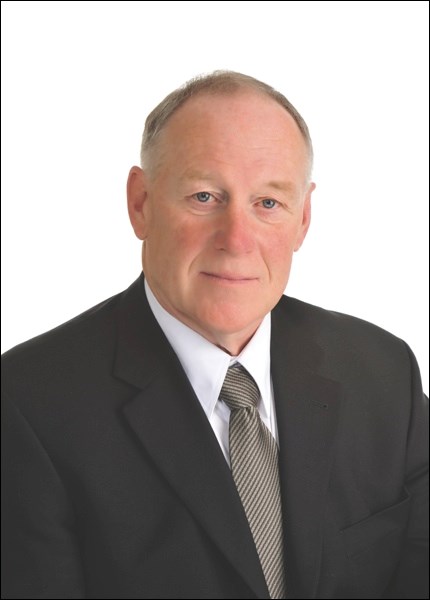The recent issues over the hours of operation of crossings at the United States border were items on Larry Doke’s plate in the last few weeks.
Doke has been actively lobbying his American counterparts to prevent a 24-hour port at Raymond, Mont., as well as three other Montana ports at Morgan, Opheim and Scobey, from reducing hours. The Morgan port is on Highway 4, the same highway that runs through the Battlefords.
“These four ports greatly impact Saskatchewan for trade and commerce,” said Doke.
Doke was tapped by Premier Scott Moe to represent the province in the meetings held on the issue: Doke also had a dual role as president of the Pacific NorthWest Economic Region which had a panel on cross border trade.
In the end, the intensive effort was mostly successful. The port Raymond will remain 24 hours and the three other ports will be open year round from 9 a.m. to 7 p.m., instead of closing at 6 p.m. during the summer as was originally proposed. Those hours took effect June 1.
While the hours for the three ports are still reduced from what they were before, when they were open during the summers from 8 a.m. to 9 p.m, Doke said they were able to come to a compromise on the issue.
“We did succeed in keeping that 24-hour port,” said Doke,
“If that would had closed during those hours the only place you could go was Portal or Sweetgrass, and there are 530 miles between those two ports. It really would have affected the trucking routes and things like that.”
The issue of border crossing hours came about when U.S. Customs and Border Protection Agency, known for short as CBP, announced in March that changes were coming to the hours of operation for their four Montana border points.
The Raymond port, located on the highway to Plentywood, Montana, is the 24-hour port used by travelers coming in on Highway 6 in Saskatchewan.
The other three ports had operating hours during the summer months from 8 a.m. to 9 p.m. The port of Morgan located south of Highway 4 is on the road heading to Malta, Mont. The Scobey port is south of Highway 36, and the Opheim port is south of Highway 2.
The CBP had proposed reducing the Raymond port’s hours so that it would be closed from midnight to 6 a.m., while two other ports would adopt reduced winter hours year-round from 9 a.m. to 6 p.m.; in the case of Scobey, the proposal was for 8 a.m. to 6 p.m.
The initial announcement by the CBP was made in March. In its wake, a number of town hall meetings were held in various Montana locales including Scobey and Plentywood.
That initial round of meetings didn’t go very well, Doke said.
“CBP came and said ‘this is what we are doing and that’s it,’” he said. Doke characterized those efforts as a “town hall telling” rather than a “town hall meeting.”
There was a “lot of backlash” that resulted from that, Doke said. It was at that point that some U.S. politicians got involved.
Doke said Montana congressman Greg Gianforte and Senator Steve Daines went to the acting commissioner of CBP, Kevin McAleenan. Senator Jon Tester got involved as well near the end.
As a result a new round of town hall meetings were then scheduled.
“I went back and did those town hall meetings and the final outcome came a week ago,” said Doke.
“We were glad we were able to contribute,” said Doke of Saskatchewan’s involvement. He described the issue as a real eye opener.
Doke noted that the changes in hours had the potential to create many disruptions.
“It creates a lot of problems as simple as sporting events in northeastern Montana where Saskatchewan schools and clubs would participate in basketball and football, and all those kinds of things.”
There were other things that Doke said he didn’t realize before spending a couple of weeks at the meetings in Montana. He found out that because of a shortage of local veterinarians in northeastern Montana, it is Saskatchewan veterinarians who go and supply that service in that part of the state. For those professionals, reducing the hours would have made it “very tough,” said Doke.
In the end, while trade and commerce were big concerns, Doke said the main concern for people was “more of a personal issue and a public issue than one of dollars and cents”.
“There’s Americans and Canadians that farm and ranch on both sides of the border. If it meant they had to travel an extra hour to feed their cattle, it wouldn’t have been good.”




